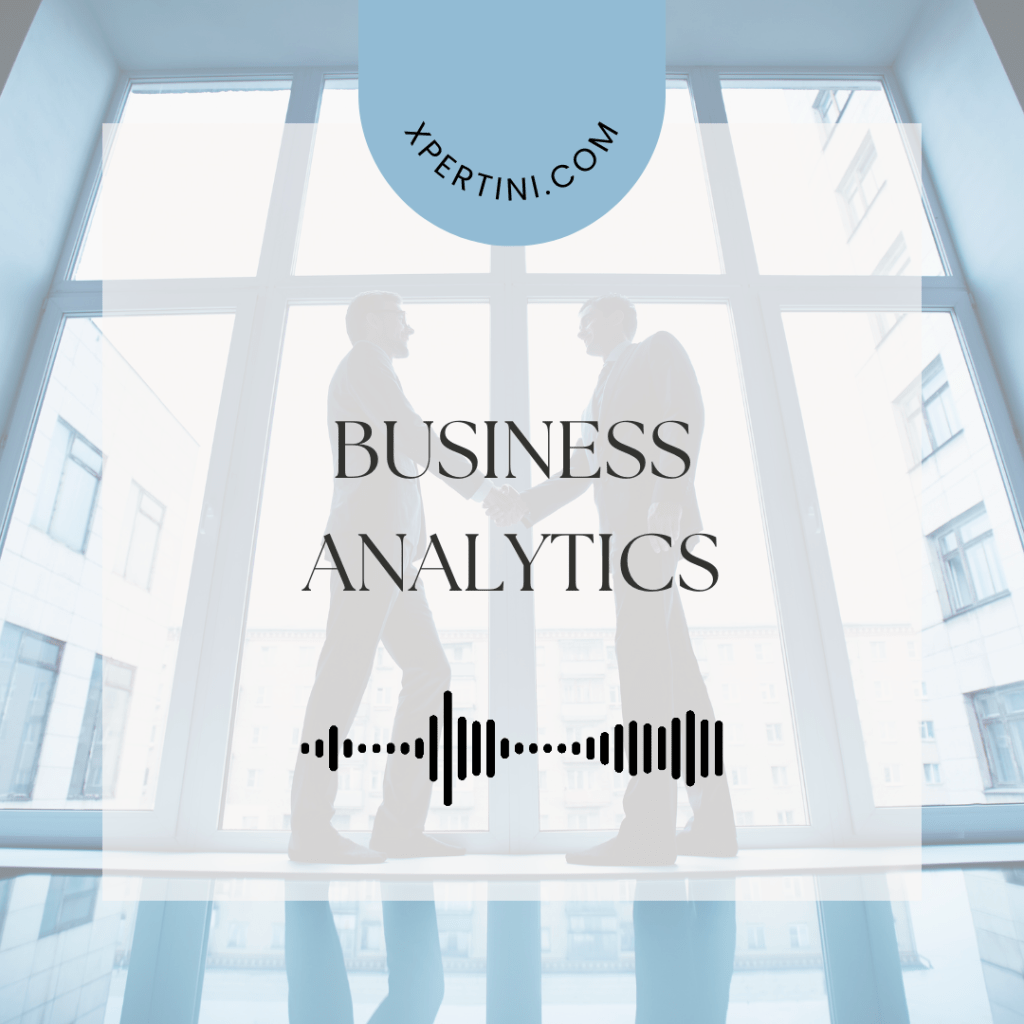Business Analytics
Course Summary
In this extensive Business Analytics course, participants will explore data-driven decision-making, ideal for those aspiring to establish a successful career in business analytics or enhance their existing knowledge in the field.
The course commences with a foundational exploration of fundamental concepts, emphasizing the critical role of data and analytics in contemporary business landscapes. Learners will trace the evolution of business analytics, uncovering key milestones and innovations that have transformed the way organizations harness data.
As the journey progresses, participants will delve into essential aspects of data collection and preparation, mastering methods, preprocessing techniques, and cleaning methodologies to ensure data accuracy and reliability. Subsequently, the course navigates through descriptive analytics, revealing the complexities of exploratory data analysis, summary statistics, and visualization techniques.
Moving forward, the curriculum introduces inferential analytics, where learners will gain proficiency in hypothesis testing and confidence intervals. This advanced analytical segment empowers participants to extract meaningful insights from data, facilitating informed decision-making.
The course advances into predictive modeling, elucidating regression analysis and the basics of machine learning. Participants will acquire practical insights into applying these techniques to predict future trends and outcomes, a pivotal skill in the data-centric landscape.
Prescriptive analytics takes the spotlight next, guiding learners through optimization techniques and decision support systems. This segment equips individuals with the knowledge to recommend actions based on data insights, steering organizations towards more effective and efficient strategies.
The penultimate lessons delve into the complexities of advanced analytics applications, exploring text and sentiment analysis along with time series analysis. Participants will uncover how these applications contribute to extracting valuable insights from unstructured data and analyzing temporal trends.
The course culminates in a robust exploration of business intelligence, focusing on reporting and dashboards, along with key performance indicators (KPIs). This segment empowers learners to transform raw data into visually compelling narratives, aiding stakeholders in making data-driven decisions.
Throughout the course, the emphasis remains on clear explanations, practical applications, and real-world relevance. By the course’s conclusion, learners are well-equipped to navigate the diverse landscape of business analytics, armed with a comprehensive skill set and the confidence to excel in this data-driven era.
Course Overview
This comprehensive Business Analytics course aims to equip participants with foundational knowledge and practical skills essential for data-driven decision-making. Covering key concepts, tools like Excel, Python, and R, and statistical methods, participants will delve into the strategic use of predictive modeling, fostering critical thinking and problem-solving within a business context. The course emphasizes effective communication of analytical findings and aims to instill a strategic mindset for leveraging analytics in organizational decision-making. Suitable for aspiring business analysts, professionals, managers, and students, this course explores the evolution of Business Analytics, data collection, preprocessing, and advanced analytics applications, offering valuable insights for varied career paths in this dynamic field.
Course Objectives
- Understand the foundational concepts and applications of business analytics
- Develop proficiency in using data analysis tools like Excel, Python, or R.
- Apply statistical methods to interpret and communicate business data effectively.
- Explore the strategic use of predictive modeling and forecasting in decision-making.
- Foster critical thinking and problem-solving skills within a business context.
- Develop effective communication skills for presenting analytical findings.
- Acquire a strategic mindset for leveraging analytics in organizational decision-making.
Course Outcomes
- Define and articulate key concepts of business analytics.
- Demonstrate proficiency in using popular data analysis tools.
- Apply statistical methods to analyze and interpret business data.
- Develop actionable insights through data visualization.
- Apply predictive modeling techniques to business scenarios.
- Solve real-world business problems using analytical techniques.
- Communicate data-driven insights effectively to diverse stakeholders.
- Evaluate the impact of business analytics on decision-making.
- Develop strategic thinking skills to align analytics with organizational goals.
- Apply analytics to optimize decision support systems.
Course Audience
- Aspiring business analysts seeking foundational knowledge.
- Business professionals aiming to enhance analytical skills.
- Managers and decision-makers interested in leveraging analytics.
- Students and individuals pursuing a career in data-driven decision-making.

